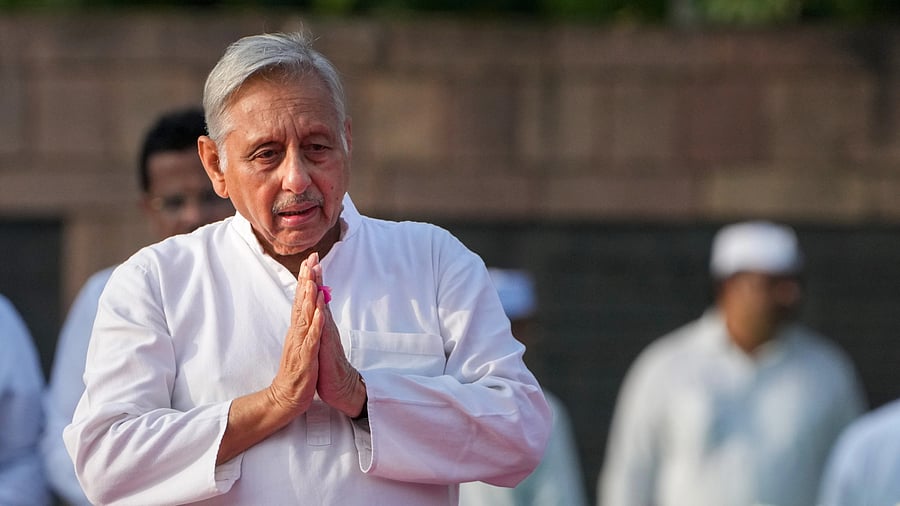
Mani Shankar Aiyar.
Credit: PTI Photo
Mani Shankar Aiyar expected Pranab Mukherjee to take over as interim prime minister after Indira Gandhi's assassination in 1984, as he was "appalled" at the thought of an "amateur", who was a pilot until the other day, taking over the reins of power, the veteran Congress leader recalls in his memoirs.
Aiyar, who watched the developments from close quarters, also questions the delay in certain decisions and some decisions not taken in controlling the anti-Sikh riots that followed the assassination but also tries to dispel some misconceptions in Memoirs of a Maverick: The First Fifty Years (1941-1991), which will hit the stands on Monday.
He in later years would change his opinion after working with Rajiv, who inducted him into politics. A detailed account of the Rajiv era will be part of another volume, which Aiyar will be publishing soon.
An IFS officer then attached to the Information and Broadcasting Ministry, he recalls Rajiv being sworn in as Prime Minister when riots broke out and pleading for peace in "an amateur, hesitant, stuttering" TV appeal, which he "learnt" was filmed after seven takes.
However, he writes that the riots continued despite a second appeal by the prime minister. Aiyar, who resigned from IFS and joined Congress after serving in Rajiv's PMO later, recalls that all he could do that day was make up his mind to vote against such an “incompetent government”.
Aiyar also seeks to dispel the widespread belief that Rajiv made the infamous ‘when a big tree falls’ speech on the day of Indira's assassination. Citing Rajiv's two broadcasts on October 31 and November 2 of 1984, Aiyar says the prime minister did not make such a comment.
It was 16 days later, on November 19, 1984, that he made this remark during an address at Boat Club. "Taken out of context and blown out of proportion, that one sentence wiped from public memory everything else that Rajiv Gandhi said and did to halt the pogrom," he adds.
Only years later, then law minister Shiv Shankar confirmed to him that Rajiv was “fed up with the government's paralysis” and at 2.30 am on November 2, 1984, he brushed aside security concerns to drive to the worst-affected areas.
Rajiv took things into his own hands instead of leaving things to PV Narasimha Rao who was the home minister and the Delhi Lieutenant Governor, he writes in the book that also talks about his days in Pakistan as an IFS officer.
Aiyar believes that Rajiv should have apologised to the Sikh community and taken upon himself and his colleagues the blame rather than some others pinning blame on him. He was also critical of the prime minister not dismissing Delhi police commissioner Gautam Kaul, who was his cousin, the delay in announcing a judicial probe and not pressing the army to control riots.
